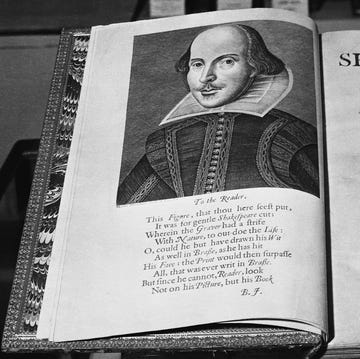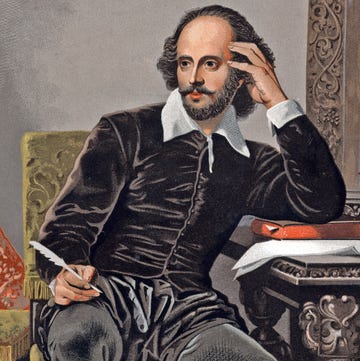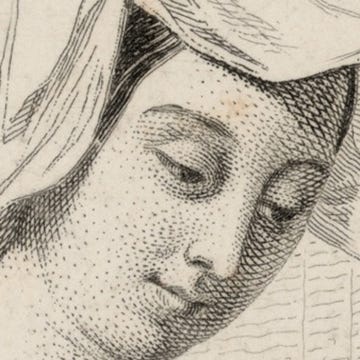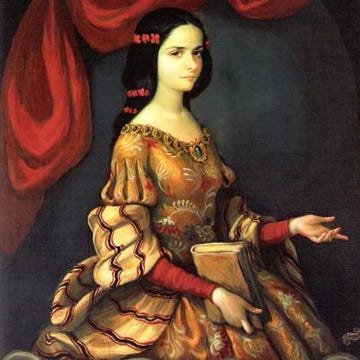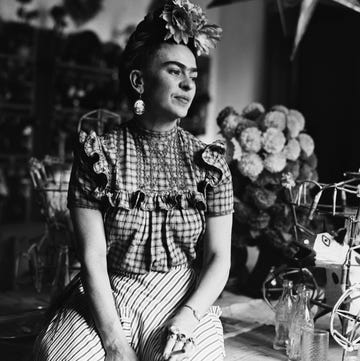(1988-)
Who is Ocean Vuong?
Born in Ho Chi Minh City (formerly known as Saigon), Vietnam, on October 14, 1988, Ocean Vuong emigrated to the United States when he was two years old. His semi-autobiographical bestselling novel, On Earth We’re Briefly Gorgeous, is a letter from a son to his mother, knowing she wouldn't be able to read it. The book received critical acclaim and won the New England Book Award for Fiction in 2019, further establishing Vuong as one of the decade's most distinguished writers.
Vuong has also released two poetry collections: Night Sky with Exit Wounds (2016), which won the T.S. Eliot Prize, and Time is a Mother (2022), in which he wrestles with the emotions following his mom’s 2019 death from breast cancer.
Early Life and Relationship with Mom
Vuong moved from Vietnam with his parents at the age of two. They settled in Glastonbury, Connecticut, just outside of Hartford, and none of the family members spoke English. His mother soon kicked out his father for beating her. Vuong knows very little about his dad except that he ended up going to jail for criminal behavior. His mother could not read and supported the family by working at a nail salon, where she spent 25 years of her life.
When he was in the third grade, he read Patricia Polacco’s Thunder Cake, which he called the “first book that I loved” in a personal essay for The New Yorker in 2017. Also in the piece, formatted as a letter to his mother, he wrote candidly about the first time his mother hit him when he was four—and the times she threw a remote control, Legos and a gallon of milk at him.
Despite this, Vuong says his mother was his world. “Everything I have done, I've done for her,” Vuong told NPR. “I went to school for her. She gave me no pressure… There's a stereotype of the Asian tiger mom. My mother was never such a mother.”
Instead, she encouraged him to be happy, adding that if worse came to worst, there was always a desk at the nail salon next to her where he could also work. “I had ultimate freedom to explore,” he continued. “And I think for me, you know, that freedom really was all to serve her.”
Education and Finding Writing
The complicated multi-layered relationship with his mother may have been the result of her post-traumatic stress disorder from living in the wake of the Vietnam War and then uprooting her life to a new country. Vuong vowed to make his life better than what she had gone through, so after attending Manchester Community College and transferring to Pace University to study international marketing, he decided to go to business school. Vuong only lasted eight weeks there, describing the education as “learning to lie,” as he told The Guardian.
Vuong dropped out of business school and went on to study 19th-century American literature at Brooklyn College. At night, he found solace in writing poetry. “You get the last word of the day,” he told the paper. “The editor in your head—the nagging, insecure, worrisome social editor—starts to retire. When that editor falls asleep, I get to do what I want. The cat’s out to play.” He later went on to get his MFA degree in poetry at New York University.
‘Night Sky With Exit Wounds’
Vuong’s late-night free writes were compiled in the 2016 poetry anthology Night Sky With Exit Wounds, which was published by Copper Canyon Press through an open submission contest. The fanfare came quickly, with The New York Times lauding its “powerful emotional undertow” from Vuong’s “sincerity and candor,” opening up about identity and experiences as both an immigrant and gay man. It also noted the “photographic clarity and a sense of the evanescence of all earthly things.”
The subjects ranged from the fall of Saigon (“Aubade with Burning City”) to the murder of a gay Dallas couple (“Seventh Circle of Earth”). Among the most powerful lines is a passage from the poem “Someday I’ll Love Ocean Vuong,” which reads, “The most beautiful part of your body / is where it’s headed. & remember, / loneliness is still time spent with the world,” and these from “A Little Closer to the Edge”: “Let every river envy / our mouths. Let every kiss hit the body / like a season.”
The collection was showered with awards, including the T.S. Eliot Prize, Whiting Award, Thom Gunn Award and Felix Dennis Prize for Best First Collection from the Forward Arts Foundation.
Writing poems wasn’t always lucrative for Vuong. He told the Times he was making $8 an hour working at Panera Bread before he sold his first novel.
‘On Earth We're Briefly Gorgeous,’ a ‘Genius’ Grant—and Ultimate Heartbreak
The year 2019 was filled with ups and downs for Vuong. He learned his mother had Stage 4 breast cancer not long before his debut novel On Earth We're Briefly Gorgeous came out that June. The book expands on his essay in The New Yorker, a letter from a son to his illiterate mother, and is a project he started writing as an experiment. As a fictionalized account of his own upbringing, his character is represented by Little Dog.
The novel, released on June 4, 2019, became a New York Times bestseller and received numerous award nominations: The book was longlisted for the National Book Award, the Andrew Carnegie Medal for Excellence and the PEN/Hemingway Award for Debut Novel. It won the American Book Award and Mark Twain American Voice in Literature Award.
A few months later, Vuong was awarded one of the prestigious MacArthur Foundation's so-called “Genius” grants.
Later that year, Vuong’s mother died from breast cancer.
On an episode of A24's podcast in December 2020, the film studio announced it is working on a big-screen adaptation of On Earth We're Briefly Gorgeous.
Queer Love and Sexuality
Much of On Earth We're Briefly Gorgeous centers around Little Dog exploring his sexuality and starting a romantic relationship with another local boy. Their lives become entwined in small-town drama, bigotry and drugs, leading to some high and very low points. The book, based on Vuong’s personal experiences growing up in Hartford, Connecticut, highlights the struggles of being gay in a family and community that has historically shunned homosexual relationships.
Despite this, Vuong said his mother was accepting when he came out to her.
"When I told her, she said, 'Well, you're still you,' and she said, 'You're all I have,'" Vuong said. "It was really important for me, because it was not like the stereotypical response that you often hear about. It was just so accepting."
His writing has become a beacon for many people of color, especially those of Asian descent, in similar circumstances.
"I don't sit down at the desk saying, well, I'm an LGBTQ writer. I just assume that [what] I write will come out of that filter," Vuong told TMRW magazine in an interview.
Vuong's Mother’s Death
Despite her illiteracy, Vuong’s mother Rose was his biggest supporter. He wrote in that first New Yorker piece: “The first time you came to my poetry reading. After, while the room stood and clapped, I walked back to my seat beside you. You clutched my hand, your eyes red and wet, and said, ‘I never thought I’d live to see so many old white people clapping for my son.’” The weight of that statement really sunk in when he visited her at the nail salon and watched her washing the feet of “one old white woman after another.”
So her death hit hard. “When I lost my mother, I thought, there's no point,” he told NPR. But it also marked an epiphany for him about his writing. “I realized that I was writing with various insecurities or fears, you know, even with all of my books,” he said. “Every writer would tell you that they're writing what they want. But…only when their mother passes away do they realize, oh, wait a minute. There's another level of freedom that I don't know.”
That led him to turn back to writing. “You lose your mother, and you lose your North Star, at least for me. And I became such a child,” he said. “And like any child, I look at the blank page and I said, ‘How do I play? Where do I locate pleasure?’ And the only place I could look to was the poems, because it was the only place I found linguistic pleasure.”
‘Time is a Mother’
That seminal time in Vuong’s life sent him on a creative exploration that has been compiled in his second poetry collection, Time is a Mother, which came out April 5, 2022. In it, he dives into the complicated emotions tied to the loss of his mother and how the hole in his life shifted his entire perspective.
In one piece, “Beautiful Short Loser,” he writes, “How come the past tense is always longer? Is the memory of a song the shadow of a sound, or is that too much? Sometimes when I can sleep, I imagine [artist Vincent] van Gogh singing Leonard Cohen's ‘Hallelujah’ into his cut ear and feeling peace.”
The experience of writing the book itself was a transformative one for Vuong. “I see all of my humor, you know, my mischievousness, my tongue-in-cheek expression, even amongst the great loss,” he tells NPR. “I said, there he is. He's finally here.”
Personal Life
Vuong is a University of Massachusetts, Amherst associate professor in the MFA program for poets and writers and lives in Northampton, Massachusetts.
QUICK FACTS
- Birth Year: 1988
- Birth date: October 14, 1988
- Birth City: Saigon
- Birth Country: Vietnam
- Best Known For: Ocean Vuong is an Asian American writer, best known for his 2019 debut novel, 'On Earth We’re Briefly Gorgeous.'
- Industries
- Writing and Publishing
- Education and Academia
- Astrological Sign: Libra
- Schools
- NYU
- University of Massachusetts (Amherst)
- Nacionalities
- Vietnamese (Vietnam)
- Interesting Facts
- Winner of T.S. Eliot Prize, American Book Award, MacArthur Foundation Grant
- Occupations
- Writer
Fact Check
We strive for accuracy and fairness.If you see something that doesn't look right,contact us!
CITATION INFORMATION
- Article Title: Ocean Vuong Biography
- Author: Biography.com Editors
- Website Name: The Biography.com website
- Url: https://www.biography.com/authors-writers/ocean-vuong
- Access Date:
- Publisher: A&E; Television Networks
- Last Updated: April 14, 2022
- Original Published Date: April 14, 2022
QUOTES
- Grief is perhaps the last and final translation of love.





